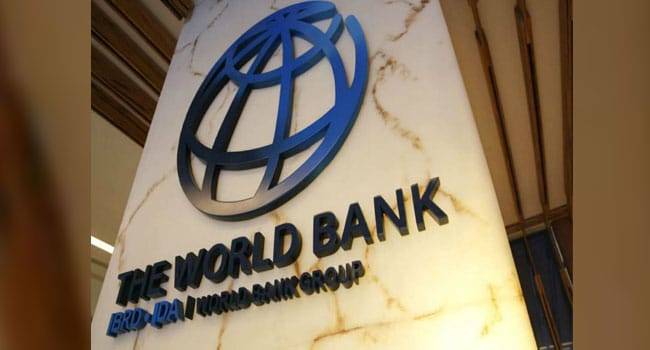Main Points In Hindi (मुख्य बातें – हिंदी में)
-
वित्तीय प्रतिबद्धता में वृद्धि: विश्व बैंक समूह ने कृषि व्यवसाय के प्रति अपनी वार्षिक फंडिंग को 2030 तक दोगुना कर 9 अरब डॉलर करने की घोषणा की है, जो कृषि क्षेत्र के विकास को बढ़ावा देगा।
-
संवेदनशीलता और समन्वित दृष्टिकोण: इस पहल का उद्देश्य उद्योग की चुनौतियों को संबोधित करना और छोटे किसानों एवं उत्पादक संगठनों को केंद्र में रखकर एक व्यापक पारिस्थितिकी तंत्र का निर्माण करना है।
-
परिवर्तनकारी रुझानों पर ध्यान: कृषि व्यवसाय को आकार देने वाले जलवायु परिवर्तन, वित्तीय प्रौद्योगिकी में प्रगति और डिजिटल समाधान जैसे रुझानों का सामना करने के लिए यह फंडिंग आवश्यकता को दर्शाती है।
-
स्थायी परियोजनाएं: विश्व बैंक ने विशेषकर नाइजीरिया में कृषि-जलवायु लचीलापन परियोजनाओं का शुरू करना, जैसे ट्रैक्टरों की खरीद और सौर ऊर्जा से संचालित बोरहोल का निर्माण, से स्थानीय समुदायों के लिए स्थायी जल स्रोत प्रदान करने का प्रयास किया है।
- उत्पादन और संसाधनों में सुधार: विश्व बैंक का ध्यान किसानों को उन्नत साधनों, उर्वरक और कीटनाशकों तक पहुंच देने के साथ-साथ फसल की पैदावार बढ़ाने और खाद्य सुरक्षा सुनिश्चित करने पर केंद्रित है।
Main Points In English(मुख्य बातें – अंग्रेज़ी में)
Here are the main points derived from the provided text about the World Bank Group’s commitment to agricultural finance:
-
Increased Funding Commitment: The World Bank Group has announced an increase in its financial commitment to agriculture businesses, pledging to double its funding to $9 billion annually by 2030.
-
Comprehensive Ecosystem Development: The initiative aims to create a comprehensive ecosystem for the agricultural sector, addressing significant challenges and opportunities within the industry.
-
Response to Transformative Trends: This funding increase responds to transformative trends reshaping agriculture, including climate change, advancements in financial technology, and the need for digital solutions.
-
Integrated Approach: The World Bank’s approach focuses on an integrated ecosystem that combines resources to support small farmers and producer organizations, enhancing solutions from storage to logistics and production.
- Impact on Productivity and Job Creation: The initiatives are designed to improve agricultural productivity and income, which will help create jobs, enhance revenue, and improve the quality of food and nutrition, contributing to overall better living standards.


Complete News In Hindi(पूरी खबर – हिंदी में)
विश्व बैंक समूह ने कृषि व्यवसाय के प्रति अपनी वित्तीय प्रतिबद्धता में वृद्धि की घोषणा की है और 2030 तक अपनी फंडिंग को दोगुना कर 9 अरब डॉलर सालाना करने का वादा किया है।
बुधवार को एक बयान में ब्रेटन वुड्स संस्था के अनुसार, इस पहल का उद्देश्य उद्योग में महत्वपूर्ण चुनौतियों और अवसरों को संबोधित करते हुए कृषि व्यवसाय क्षेत्र के लिए एक व्यापक पारिस्थितिकी तंत्र बनाना है।
यह महत्वपूर्ण फंडिंग वृद्धि जलवायु परिवर्तन, वित्तीय प्रौद्योगिकी में प्रगति और डिजिटल समाधानों की आवश्यकता सहित कृषि व्यवसाय को फिर से आकार देने वाले परिवर्तनकारी रुझानों के जवाब में आती है।
विश्व बैंक समूह के अध्यक्ष अजय बंगा ने कहा, “हम एक चौराहे पर खड़े हैं और आज हम जो रास्ता चुनेंगे वही भविष्य तय करेगा।”
“विश्व बैंक का पारिस्थितिकी तंत्र दृष्टिकोण हमें खंडित प्रयासों से परे समाधानों के एक समूह की ओर ले जाता है जिसमें भंडारण से लेकर रसद से लेकर उत्पादन तक सब कुछ शामिल है, लेकिन केंद्र में छोटे किसानों और उत्पादक संगठनों को शामिल किया गया है।”
बहुपक्षीय ऋणदाता ने कहा कि यह पारिस्थितिकी तंत्र एक बेहतर, सरल, अधिक समन्वित संस्थान बनने के लिए पिछले 16 महीनों में किए गए कार्यों के कारण संभव हुआ है।
इसमें कहा गया है, “अधिक एकीकृत दृष्टिकोण व्यापक समर्थन और अनुरूप समाधान प्रदान करने के लिए संस्थान के सभी संसाधनों को एक साथ लाएगा।”
विश्व बैंक ने कहा कि वह आईबीआरडी और आईडीए के अनुभव निर्माण क्षमता और सार्वजनिक क्षेत्र की सेवाओं के साथ एक निरंतरता विकसित कर रहा है; और IFC और MIGA वित्तपोषण और निजी क्षेत्र तक पहुंच।
इसमें कहा गया है, “आखिरकार, काम करने का यह सतत तरीका व्यापार और सरकारी भागीदारों द्वारा समान रूप से देखा और महसूस किया जाएगा, जिसका लक्ष्य 2030 में जुटाव को 5 अरब डॉलर तक बढ़ाना है।”
बैंक के अनुसार, कृषि उत्पादकता और आय में वृद्धि से नौकरियां पैदा करने, राजस्व बढ़ाने और भोजन और पोषण की गुणवत्ता में सुधार करने में मदद मिलेगी।
“जलवायु-स्मार्ट उत्पादन प्रथाओं का मतलब कम उत्सर्जन और स्वच्छ हवा और पानी होगा। कुल मिलाकर, जीवन की बेहतर गुणवत्ता,” यह स्पष्ट हुआ।
नाइजीरिया के लिए अपने चल रहे समर्थन के हिस्से के रूप में, विश्व बैंक ने अर्ध-शुष्क परिदृश्यों में कृषि-जलवायु लचीलापन परियोजना जैसी परियोजनाएं शुरू की हैं, जिसने पहले ही संघीय राजधानी क्षेत्र में कृषि उत्पादकता को बढ़ावा देने में प्रगति की है।
परियोजना में ट्रैक्टरों की खरीद और सौर ऊर्जा से संचालित बोरहोल का निर्माण शामिल है, जिसका उद्देश्य सिंचाई क्षमताओं को बढ़ाना और स्थानीय समुदायों के लिए स्थायी जल स्रोत प्रदान करना है।
विश्व बैंक के प्रयास कृषि आदानों में सुधार लाने पर केंद्रित हैं, जैसे किसानों को उन्नत पौध, उर्वरक और कीटनाशकों तक पहुंच प्रदान करना।
बैंक के अनुसार, उन पहलों को फसल की पैदावार बढ़ाने और जलवायु परिवर्तन के प्रतिकूल प्रभावों से निपटने, खाद्य सुरक्षा सुनिश्चित करने और क्षेत्र में आर्थिक विकास को बढ़ावा देने के लिए डिज़ाइन किया गया था।
Complete News In English(पूरी खबर – अंग्रेज़ी में)
The World Bank Group has announced an increase in its financial commitment to agricultural business, promising to double its funding to $9 billion a year by 2030.
In a statement released on Wednesday, the Bretton Woods institution indicated that the initiative aims to create a comprehensive ecosystem for the agricultural sector, addressing significant challenges and opportunities within the industry.
This increase in funding comes in response to transformative trends reshaping agricultural business, such as climate change, advancements in financial technology, and the need for digital solutions.


Ajay Banga, President of the World Bank Group, stated, “We are at a crossroads, and the path we choose today will shape the future.” He emphasized that the World Bank’s ecosystem approach moves beyond fragmented efforts to a set of solutions that include everything from storage to logistics to production, with a focus on small farmers and producer organizations.
The multilateral lender explained that this ecosystem has been made possible by efforts over the past 16 months to become a better, simpler, and more coordinated institution.
It further stated, “A more integrated approach will bring together all institutional resources to provide widespread support and tailored solutions.”
The World Bank is working to develop continuity between the experiences of IBRD and IDA, along with the financing and private sector access provided by IFC and MIGA. It aims to increase mobilization to $5 billion by 2030, which will be recognized and realized by both business and government partners.
According to the bank, increasing agricultural productivity and income will help create jobs, increase revenue, and improve the quality of food and nutrition.
“Climate-smart production practices will lead to lower emissions and cleaner air and water, resulting in a better quality of life,” it was noted.
As part of its ongoing support for Nigeria, the World Bank has initiated projects like the agricultural-climate resilience project in semi-arid areas, which has already made progress in raising agricultural productivity in the federal capital region.
The project involves purchasing tractors and constructing solar-powered boreholes to enhance irrigation capabilities and provide sustainable water sources for local communities.
The World Bank’s efforts focus on improving agricultural inputs by providing farmers access to improved seeds, fertilizers, and pesticides. These initiatives are designed to increase crop yields, tackle the adverse impacts of climate change, ensure food security, and promote economic development in the region.
Source link








